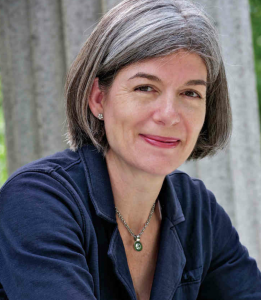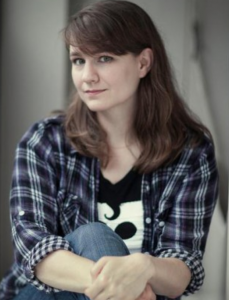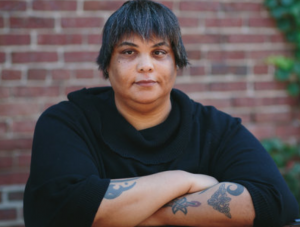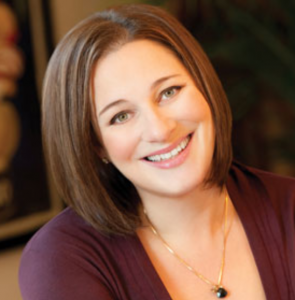This is part of the Bittersweet Book Launch case study, where Dan Blank and Miranda Beverly-Whittemore share the yearlong process of launching her novel. You can view all posts here.
by Miranda Beverly-Whittemore
 First, it was the Claire Messud interview in Publisher’s Weekly, the one where she was asked if she’d want to be friends with the protagonist of her most recent novel, The Woman Upstairs. Her reaction is best summed up, I think, in this exchange:
First, it was the Claire Messud interview in Publisher’s Weekly, the one where she was asked if she’d want to be friends with the protagonist of her most recent novel, The Woman Upstairs. Her reaction is best summed up, I think, in this exchange:
PW: I wouldn’t want to be friends with Nora, would you? Her outlook is almost unbearably grim.
CM: For heaven’s sake, what kind of question is that? Would you want to be friends with Humbert Humbert? Would you want to be friends with Mickey Sabbath? Saleem Sinai? Hamlet? Krapp? Oedipus? Oscar Wao? Antigone? Raskolnikov? Any of the characters in The Corrections? Any of the characters in Infinite Jest? Any of the characters in anything Pynchon has ever written? Or Martin Amis? Or Orhan Pamuk? Or Alice Munro, for that matter? If you’re reading to find friends, you’re in deep trouble. We read to find life, in all its possibilities. The relevant question isn’t “is this a potential friend for me?” but “is this character alive?”
 After this interview came out, there was much kerfuffle on the literary internet, mainly (at least in what I read) in support of Claire Messud. I loved what Kelly Braffet had to say on the matter in Salon:
After this interview came out, there was much kerfuffle on the literary internet, mainly (at least in what I read) in support of Claire Messud. I loved what Kelly Braffet had to say on the matter in Salon:
We, as writers, need to stop making ourselves gun-shy about our characters’ likability. There is less of a gulf between ourselves and our readers than we are occasionally tempted to think. Yes, there will always be characters that some readers just don’t want to read about, but I think most readers can experience a character who is neither a Mary Sue nor a Humbert Humbert – someone who makes bad decisions, and is a bad friend, and doesn’t make adequate arrangements for the care of their companion animals before leaving town – and still care about their story: how they got there, how they’ll get out.
 Then Roxane Gay weighed in on Buzzfeed, and that was pretty great too:
Then Roxane Gay weighed in on Buzzfeed, and that was pretty great too:
In many ways, likability is a very elaborate lie, a performance, a code of conduct dictating the proper way to be. Characters who don’t follow this code become unlikable. Critics who fault a character’s unlikability cannot necessarily be faulted. They are merely expressing a wider cultural malaise with all things unpleasant, all things that dare to breach the norm of social acceptability.
 And finally, there was this comprehensive piece on Jennifer Weiner in the New Yorker, which kind of pitted Weiner against Messud on the likability front:
And finally, there was this comprehensive piece on Jennifer Weiner in the New Yorker, which kind of pitted Weiner against Messud on the likability front:
Weiner had been particularly bothered by Messud’s response to an interviewer who had suggested that Nora Eldridge was not the kind of character a reader might want to befriend. “If you’re reading to find friends, you’re in deep trouble,” Messud had replied, citing other fictional characters who were not B.F.F. material: Humbert Humbert, Mickey Sabbath, Hamlet, Oedipus, Antigone, Raskolnikov.
“Novels were absolutely, positively not there to serve the petty function of helping people feel connected,” Weiner went on. “And if you believed that—if you wrote that way, or if you read that way—then, by God, you were Doing Reading Wrong.” Messud’s comments had left Weiner with “a sinking heart, and an unhappy sense of recognition. Once again, as a reader and a writer, I was out of step, out of fashion.”
All of this has very interesting to read and think about ever since the debate “started” (although, let’s be honest, this debate has been going on since long before Messud was asked the likability question by Publisher’s Weekly). I’ve bandied about all sorts of thoughts about it, and talked to fellow writers about it. I see Messud’s point, and I see Weiner’s. Bittersweet’s protagonist, Mabel, is prickly but not necessarily unlikable, and as I wrote this book, I definitely walked this line purposefully, pushing Mabel into slightly uncomfortable territory (she’s a liar, and a spy, and a striver) while retaining some fundamental moral center. Did I do that because I thought more people would read it? Well, no. But I was writing a book that I hoped many people would want to read, so perhaps decisions about who Mabel would be came, unconsciously, out of such a desire.
All that aside, what I’ve found myself thinking, when my mind floats back to this “likability” question, is not as a woman who writes female characters, but as a writer who is a woman.
After all, isn’t that the heart of this conversation? Likability isn’t just a character trait, it’s a human trait, and it’s one that many women are taught to put forth first and foremost. Looking back on my life, I can see that I have always been someone who has wanted to be liked. It’s awful to see it written here that frankly, but the truth is that personal likability has mattered to me all my life; one of the reasons that I’m happy to now be in my late thirties is that, for the first time in this journey, I’m really fine with not being liked. I don’t obsess over it like I use to, probably because I’m more comfortable in my own skin than ever before.
On that note, in no particular order, with no scientific method, are a few recent events in my working life, all of which I’m seeing through the filter of this likability question, all of which have to do with female writers:
Last week, when I wrote a blogpost about my dance with Failure, I was moved and thrilled to get a lot of responses. Many of these responses were privately written to my inbox, many said “boy, I can relate,” and the overwhelming majority of them were written by women. What surprised me was how so many of these messages either directly addressed or hinted at the idea that I was saying something that they wanted to say but felt they couldn’t. Why couldn’t they, I wondered? I got the sense, time and again, that they felt they needed to be silent because they were afraid that if they spoke up and said, “I’m angry” or “I’m sad” that they’d sound, well, unlikable. I could certainly relate; I’ve done the same more times than I can count.
Also last week, I was given the chance to look at an article that’s being written about me in conjunction with Bittersweet’s publication. The article’s author mentioned to me that both myself and another writer featured in the article had expressed concern, once reading it, that we sounded too braggy when discussing what we felt were our writerly strengths. “But,” the author’s article replied, “those are your strengths! And isn’t it fantastic you know that?” Then she mentioned a male writer she’d once met just before a book of his (which ended up being very well received) came out. She asked him what he was working on, and he told her the working title, then added: “It’s going to be huge.” We both laughed as she recounted this tale- who in their right mind would say such a thing about their own work? Then again, he’d been right. Who would say such a thing? “Well,” she pointed out, “a man.”
Finally, this fall I asked a female writer for a big favor. She was not someone I personally knew, but we had a tenuous connection. And yet, it was a big favor, one I felt somewhat uncomfortable even asking. I was proud of myself for being brave, and excited she was warm in her response to help me. When it became clear it was going to be hard for her to help me, it absolutely understood (I knew it was a longshot). So I was surprised, when she apologized, to hear how vehemently she regretted not being able to help me. She apologized profusely, used the word “ashamed” to describe her current state, asked if I would forgive her. I assured her I understood completely, and, ultimately, she was able to help, which I very much appreciated. But when I initially heard back from her, I wanted to reach out across the ether, link my arm in hers, and say to her, “It’s okay, you don’t need to worry, I still would like/ admire/ honor your attempt to help me, even if you couldn’t.” I think, in many ways, I was talking to myself; I know I’ve done the same thing on more than one occasion. And yet, I wondered, would most male writers even bat an eye?
I wonder what would happen if some of us stopped worrying so much about being liked. Or at least being liked so much. I wonder how that might change this conversation. If we were deemed “bitchy” or “needy” or “demanding” as a result, could we agree to decide not to care about that? I’m not sure I have the answer to that, even for myself. But it’s something I’m thinking about.
